
COMITÉ PSICOLOGÍA TRASLACIONAL DE LA SIP

Grupos de trabajo: Roberto Ordoñez, Tatiana Manrique, Isabel Díaz.
Iniciativa Presidencial para continuar creando puentes
En agosto de 2023, el Dr. Julio Penagos, presidente de la Sociedad Interamericana Psicología (SIP), convocó a un destacado grupo de profesionales, miembros de la SIP, para dar paso a una iniciativa presidencial. Así nació el Comité de Psicología Traslacional, con el propósito de llevar a cabo acciones concretas que permitan que las investigaciones y debates académicos en psicología lleguen a los profesionales que trabajan directamente con los usuarios, superando las barreras impuestas por la diversidad de contextos en nuestra América.
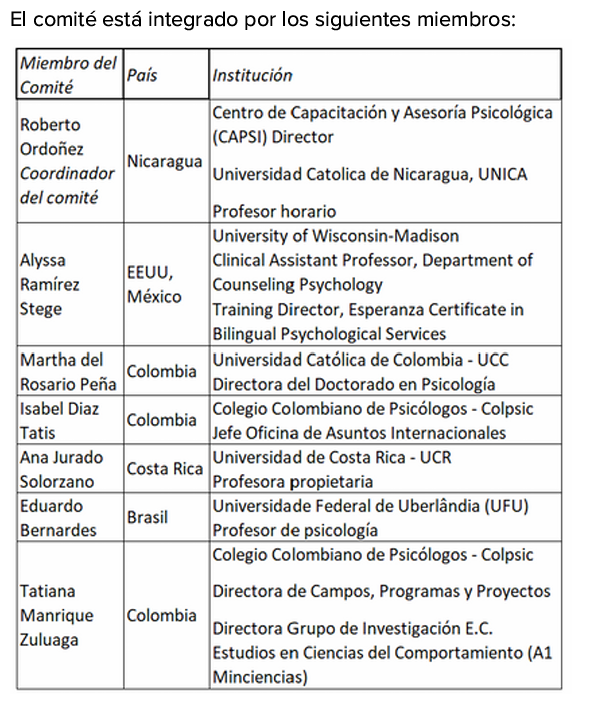
La psicología traslacional, también conocida como investigación traslacional en psicología, se centra en la aplicación práctica de los descubrimientos científicos para mejorar la salud mental y el bienestar. Este campo busca “traducir” los hallazgos de la investigación básica y sus aplicacionesprácticas, intervenciones y políticas que puedan ser implementadas en contextos clínicos, educativos, organizacionales, comunitarios o sociales (Tashiro & Mortensen, 2006; Zhu, 2020; Marková, 2018).
En este marco de la psicología traslacional, la misión del comité es reducir la brecha entre la investigación y la práctica psicológica, promoviendo una conexión y colaboración más estrecha entre los profesionales de la psicología y las comunidades en las Américas.
La visión del comité es establecerse como una estructura de referencia dentro de la SIP para el estudio y debate en temas de traslacionalidad en psicología, así como para el diseño y ejecución de proyectos concretos que faciliten el acercamiento entre las comunidades científicas, académicas y profesionales con las realidades de nuestra región.
Entre las primeras acciones del comité se encuentra realizar una contextualización del estado de la psicología en diferentes países de América Latina, conocer su estructuración y regulación con el fin de visibilizar propuestas de formación, capacitación e investigación. A partir de esta contextualización, el comité espera impulsar y apoyar proyectos de investigación en temas de traslacionalidad, facilitando el desarrollo de herramientas, competencias y habilidades para el ejercicio profesional en los diferentes campos de acción en nuestra disciplina.
La creación del Comité de Psicología Traslacional en la SIP marca un hito significativo en el esfuerzo por aportar a cerrar la brecha entre la investigación académica y la práctica profesional en la región. Este comité no solo intenta conectar de manera más efectiva a los psicólogos con las comunidades a las que sirven, también buscará hacer incidencia en la adaptación y contextualización del conocimiento psicológico para que sea aplicable en los diversos entornos de América; impulsando proyectos concretos y promoviendola colaboración transdisciplinaria, contribuyendo desde esta trinchera al bienestar social y al desarrollo humano en nuestra región, trabajando para que los avances científicos se traduzcan en beneficios tangibles para la sociedad.
—————————————–
TRANSLATIONAL PSYCHOLOGY COMMITTEE
Presidential Initiative to Continue Building Bridges
In August 2023, Dr. Julio Penagos, president of the Inter-American Society of Psychology (IAPA), convened a prominent group of professionals, members of the IAPA, to give way to a presidential initiative. This is how the Translational Psychology Committee was born, with the purpose of carrying out concrete actions that allow research and academic debates in psychology to reach professionals who work directly with users, overcoming the barriers imposed by the diversity of contexts in our America.
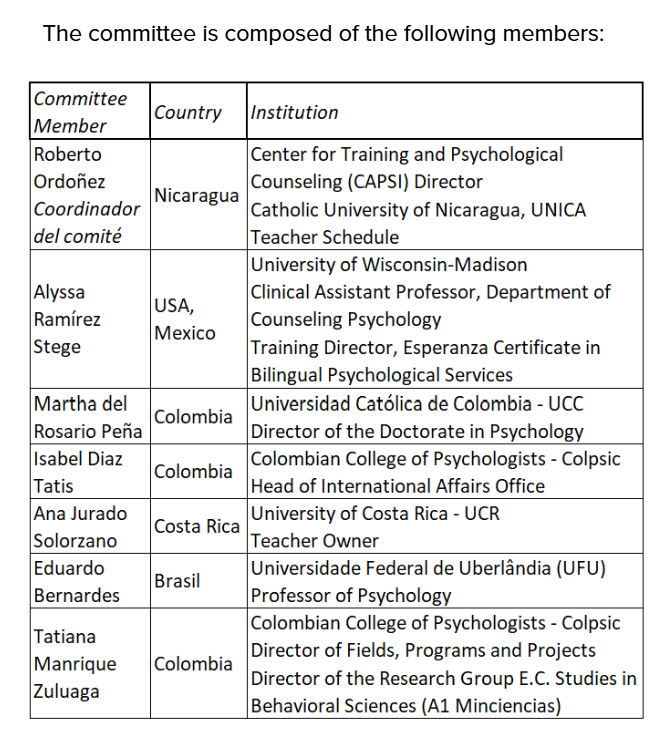
Translational psychology, also known as translational research in psychology, focuses on the practical application of scientific discoveries to improve mental health and well-being. This field seeks to “translate” the findings of basic research and its practical applications, interventions, and policies that can be implemented in clinical, educational, organizational, community, or social contexts (Tashiro & Mortensen, 2006; Zhu, 2020; Marková, 2018).
In this framework of translational psychology, the committee ‘s mission is to bridge the gap between psychological research and practice, promoting closer connection and collaboration between psychology professionals and communities in the Americas.
The vision of the committee is to establish itself as a reference structure within the IAPA for the study and debate on translational issues in psychology, as well as for the design and execution of concrete projects that facilitate the rapprochement between the scientific, academic and professional communities with the realities of our region.
Among the first actions of the committee is to contextualize the state of psychology in different Latin American countries, to learn about its structuring and regulation in order to make visible proposals for education, training and research. Based on this contextualization, the committee hopes to promote and support research projects on translational issues, facilitating the development of tools, competencies and skills for professional practice in the different fields of action in our discipline.
The creation of the Translational Psychology Committee at the IAPA marks a significant milestone in the effort to contribute to closing the gap between academic research and professional practice in the region. This committee not only tries to connect psychologists more effectively with the communities they serve, it will also seek to make an impact on the adaptation and contextualization of psychological knowledge so that it is applicable in the various environments of America; promoting concrete projects and promoting transdisciplinary collaboration, contributing from this trench to social well-being and human development in our region, working so that scientific advances translate into tangible benefits for society.
Referencias – References:
Marková, I. (2018). Translational neuroscience and psychiatry: A conceptual analysis. Journal of Evaluation in Clinical Practice, 24, 791–796. https://doi.org/10.1111/jep.12914
Tashiro, T., & Mortensen, L. (2006). Translational research: how social psychology can improve psychotherapy.. The American psychologist, 61 9, 959-66 . https://doi.org/10.1037/0003-066X.61.9.959.
Zhu, L. (2020). A critical review of the research on Translation Psychology: Theoretical and methodological approaches. Linguistica Antverpiensia, New Series – Themes in Translation Studies. https://doi.org/10.52034/lanstts.v19i0.559.
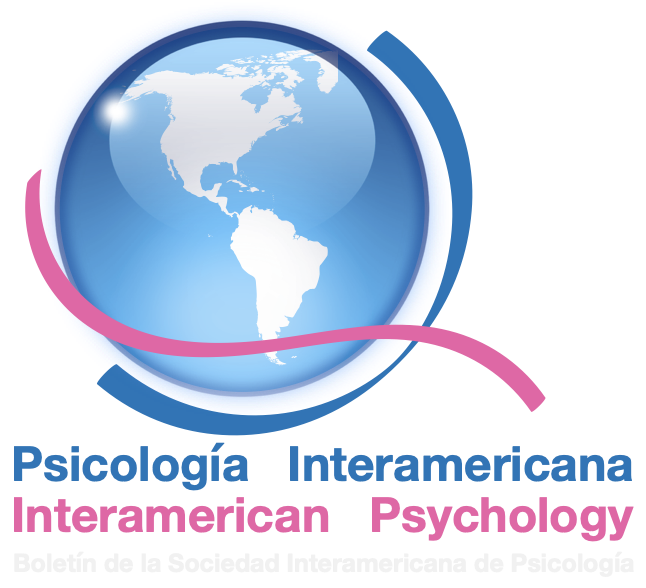
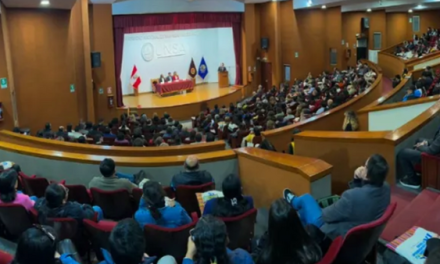
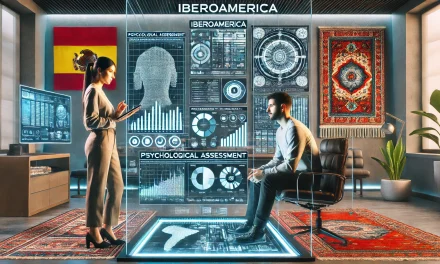
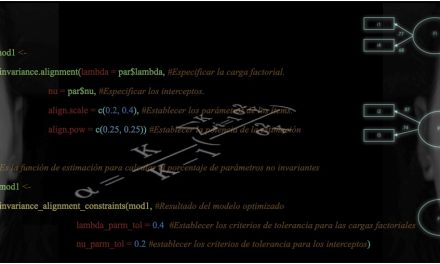





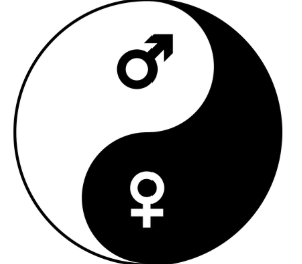



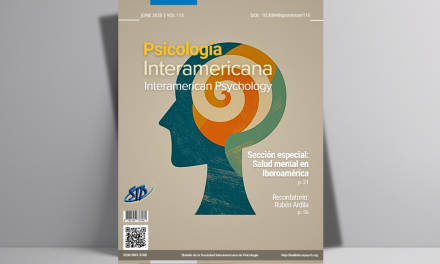



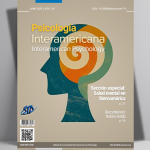




Trackbacks/Pingbacks